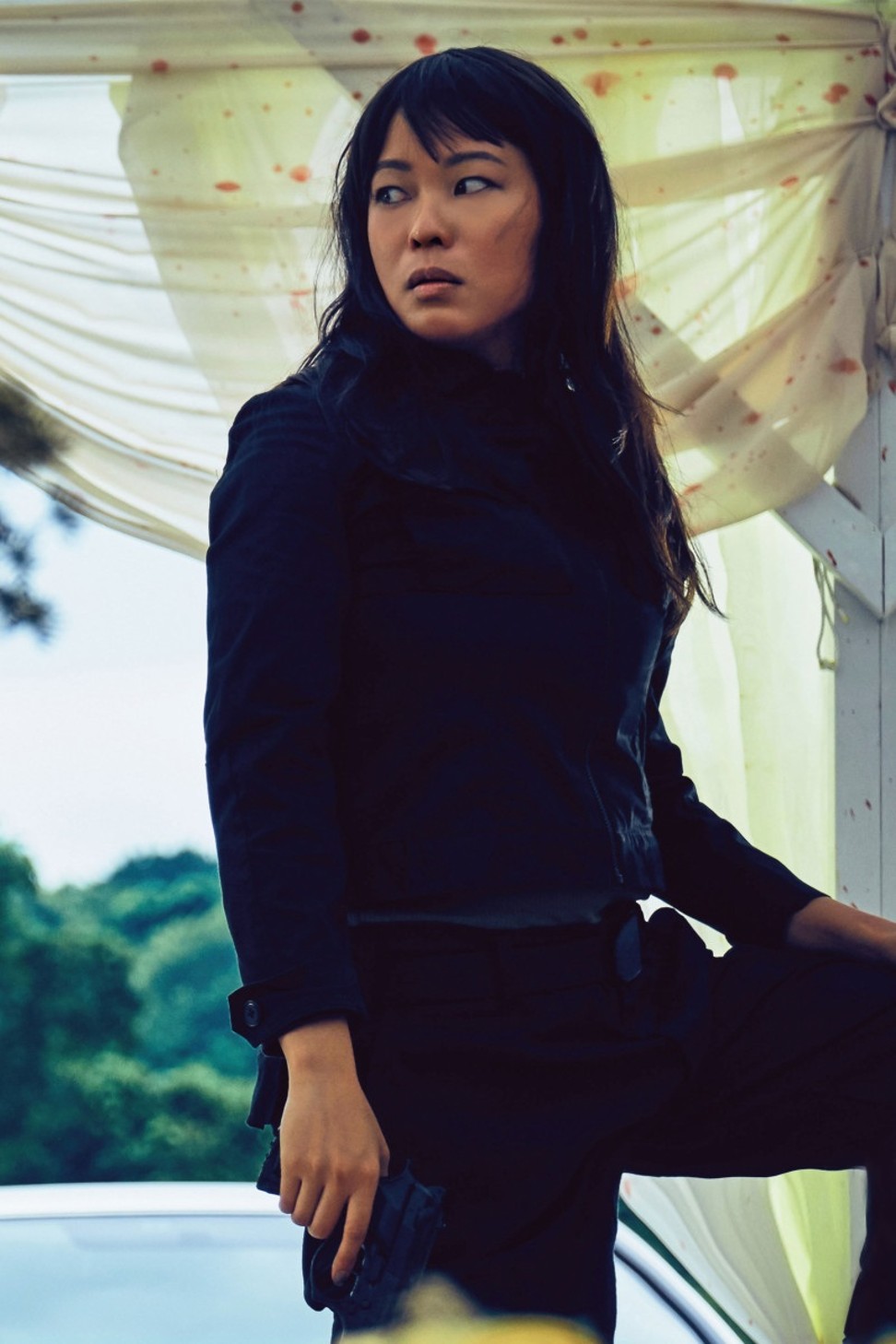
(Variety) Mainland Chinese cinema is bloated with youth romances wallowing in ’90s nostalgia, yet this pivotal stage in life has never appeared as pure, beatific and cruel as depicted in “Youth,” the latest from Chinese box office king Feng Xiaogang. Tracking the tempestuous fates of a People’s Liberation Army (PLA) dance troupe from the Cultural Revolution to the ’90s, the film serves as a paean to idealism and endurance, yet the word “heart-breaking” comes to mind scene after scene.
Even if China’s millennials has no time for the vintage subject, a large contingent of older viewers who collectively share Feng’s sense of nostalgia should lend the epic heart-felt support. On the other hand, the film’s long 146-minute running time and seeming glorification of the military may influence overseas reception.
Without the technical contrivances of “I Am Not Madame Bovary,” Feng employs traditional craftsmanship to draw a sweeping historical canvas with profound human upheavals that mirror virtues and flaws of the Chinese people, without ever losing sight of the personal experiences that he dramatizes with such acute sensuality.
The narrator Suizi (Zhong Chuxi), a stand-in for screenwriter Yan Geling (“The Flowers of War” and “Coming Home”), whose semi-biographical novel was the film’s literary source, belongs to a military dance troupe stationed in the Great Southwest. However, the central figure is actually Xiaoping (Miao Miao), whose father has been branded a Rightist and thrown in a re-education camp. She is recruited from Beijing by the good-looking and kind-hearted lead dancer Liu Feng (Huang Xuan).
The pristine surroundings of their training center and dreamy soft focus that accompanies the young dancers whenever they rehearse revolutionary ballets exude a rarefied atmosphere that reinforces how privileged the troupe is, shielded from hunger, violence and back-breaking labor at the height of the Cultural Revolution. And yet, a hierarchy based on political pedigree is firmly in place in the so-called classless society. Shuwen (Li Xiaofeng) the daughter of a general and hospital supervisor, is the queen bee. Dingding (Yang Caiyu) scores with her looks, while Mongolian Drolma (Sui Yuan) plays her ethnic minority card.
Xiaoping’s blemished parentage condemns her to the bottom of the ladder, and most of the drama revolves around her being picked on, as when she is shamed for slipping into Shuwen’s army uniform to pose for a photo. It is not until the late ’70s, after the fall of the Gang of Four, that Xiaoping reveals why she took that photo. The reason, which has nothing to do with vanity or patriotism, is heartwrenchingly personal.
While the film is unabashedly romantic in its evocation of the dancers’ physical beauty and innocence, a furtive sensuality ripples beneath the surface of their cloistered lives, as in a locker room scene when the girls’ lingerie glisten with water droplets, or when Dingding has a tryst with a soldier who spoon-feeds her orange marmalade in a dark alley. As a sign of changing times, foreign imports that trickle in, like flares and banned songs of Taiwanese popstar Teresa Teng, stir up repressed desires and promise unknown pleasures.
In a dark twist on the relaxation of sexual mores, Feng’s untimely confession of a long-held crush has disastrous consequences, exposing not only the obscene prurience of senior army officers, but the hypocritical morality of his once-adoring comrades. This allows the plot to segue to the Sino-Vietnam border wars in the 80s. Recalling his civil war drama “Assembly,” Feng shoots the battle scenes as propulsive spectacles of bloodshed, making one realize what an idyllic bubble the protagonists’ vocation was.
The film’s ubiquitous display of military regalia and the characters’ awed veneration of the PLA ostensibly smacks of jingoism, but the colossal human sacrifices depicted, and eventual unceremonious phasing out of the troupe as their propagandist function wanes, demonstrate Feng’s subtle departure from the conventions of “main rhythm” (government endorsed) cinema.
This is most discernible in the case of Feng, whose altruistic character earned him the nickname “Lei Feng”– a legendary model worker upheld as a Chinese counterpart of the Soviet Stahkanov. Ironially, his endeavor to live up to that name is presented as delusional. As Suizi comments: “He yearned to be a martyr so that his ordinary life could become heroic history.” Sporting a clean-shaven image as Feng, Huang projects the aura of someone always under a halo, but humanizes his role in the latter half with an outburst of bitter emotions.
The one who draws the most sympathy is Xiaoping, who struggles stoically to rise above her misfortunes. Though Feng refrains from sentimental treatment, he orchestrates two dance setpieces that are wonderful to behold and deeply cathartic, even as they serve as a veiled criticism of authorities through Suizi’s conclusion that “the collective abandoned her.”
The epilogue, set in Hainan in 1991, is arguably too drawn out, yet it’s an unconventional inversion of the Chinese youth nostalgia formula in which grassroots protagonists all become corporate execs and entrepreneurs. Instead, the scene is decidedly downbeat, as the proles stay downtrodden while the offspring of party elites rule the neo-capitalist market in the age of reform.
Production values are generous without seeming overly lavish. Feng’s regular DP Luo Pan’s stately cinematography works wonders with a green color palette that evokes the freshness of youth amid the sea of khaki uniforms, luxuriant foliage and grasslands from its Yunnan and Qinghai settings.
Production and costume design by Shi Haiying are immaculate, instilling elegance to the humble simplicity of early communist era decor and paraphernalia. The score by Zhao Lin, Dai and Xiaofei reflects the heavy orchestral tenor of the period’s state music, while the mournful theme song, whose lyrics reference the Chinese title “Fragrant Youth,” encapsulates the film’s theme.
Toronto Film Review: 'Youth'
Reviewed online, Taipei, Aug. 16, 2017. (In Toronto Film Festival — Special Presentation.) Running time: 146 MIN. (Original title: “Fang Hua”)
Production
(China) A Huayi Brothers Pictures (in China), China Lion Distribution (in U.S.) release of a Zhejiang Dongyang Mayla Media, Huayi Brothers Pictures, iQiyi Motion Pictures (Beijing) Co., Beijing Sparkle Roll Media, Beijing Jingxi Culture & Tourism Co., August First Film Studio production. (International sales: IM Global, London.) Producers: Wang Zhonglei, Wang Zhongjun, Gong Yu, Song Ge, Qi Jianhong, Zhang Fangjun. Executive producers: Feng Xiaogang. Co-producers: Jenny Ye, Hu Xiaofeng, Ya Ning, Du Yang, Yan Pin.
Crew
Director: Feng Xiaogang. Screenplay: Yan Geling, based on her novel. Camera (color, HD): Luo Pan. Editor: Zhang Qi. Music: Zhao Lin, Dai Xiaofei.
With
Miao Miao, Huang Xuan, Zhang Chuxi, Li Xiaofeng, Yang Caiyu, Sui Yuan, Zhao Lixin, Wang Tiancheng. (Mandarin dialogue)
Source: Variety by Maggie Lee


































































































